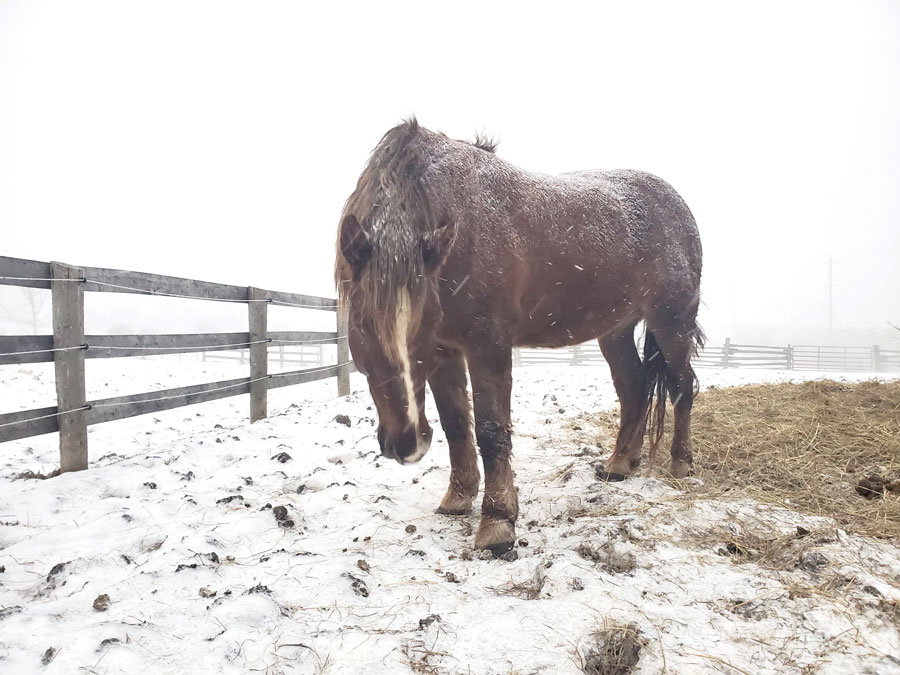WELLINGTON COUNTY – The Ontario Ministry of Agriculture, Food, and Rural Affairs (OMAFRA) has confirmed one case of equine herpes myeloencephalopathy (EHM) in the Waterloo Region.
The ministry was notified on Jan. 5 after a mare with rapidly deteriorating incoordination was examined and treated by a veterinarian.
EHM is caused by equine herpesvirus-1 (EHV-1). The most recent confirmed case in Wellington County was in August.
The virus is highly contagious and can be carried from one facility to another on surfaces such as clothes and boots of farriers, veterinarians and other people in contact with horses at multiple premises.
It is common for equine professionals to travel between the region of Waterloo and Wellington County.
This is leading many equine facilities in Wellington County to increase bio-security measures to protect their horses from the virus.
In the statement released on Jan. 9, OMAFRA noted “EHV-1 does not pose a threat to public health or food safety.”
Clinical signs of equine herpesvirus include a fever (over 38.6 C) and neurological symptoms like loss of balance, weakness in back legs, difficulty urinating, depression, or inability to stand.
Equine presenting with symptoms should be assessed by a veterinarian.
Equine herpesvirus spreads via close contact or contaminated surfaces including “clothing and hands of people who have recently had contact with an infected horse.”
OMAFRA advises restricting movement of horses and people exposed to the virus for 21 days.
“Any person moving between equine facilities should change their clothes, shoes/boots and wash their hands,” officials state.
“Facility owners should also inform all service providers that have attended the facility within the previous week.”
Horses can be vaccinated for equine herpesvirus. The vaccine reduces shedding but does not “prevent the disease or minimize clinical signs,” notes the OMAFRA statement.
The most effective way to reduce the risk of equine herpes spreading is to routinely practice biosecurity measures including hand washing, disinfecting equipment and surfaces, and keeping horses who have traveled long distances separate from other horses for two weeks.




